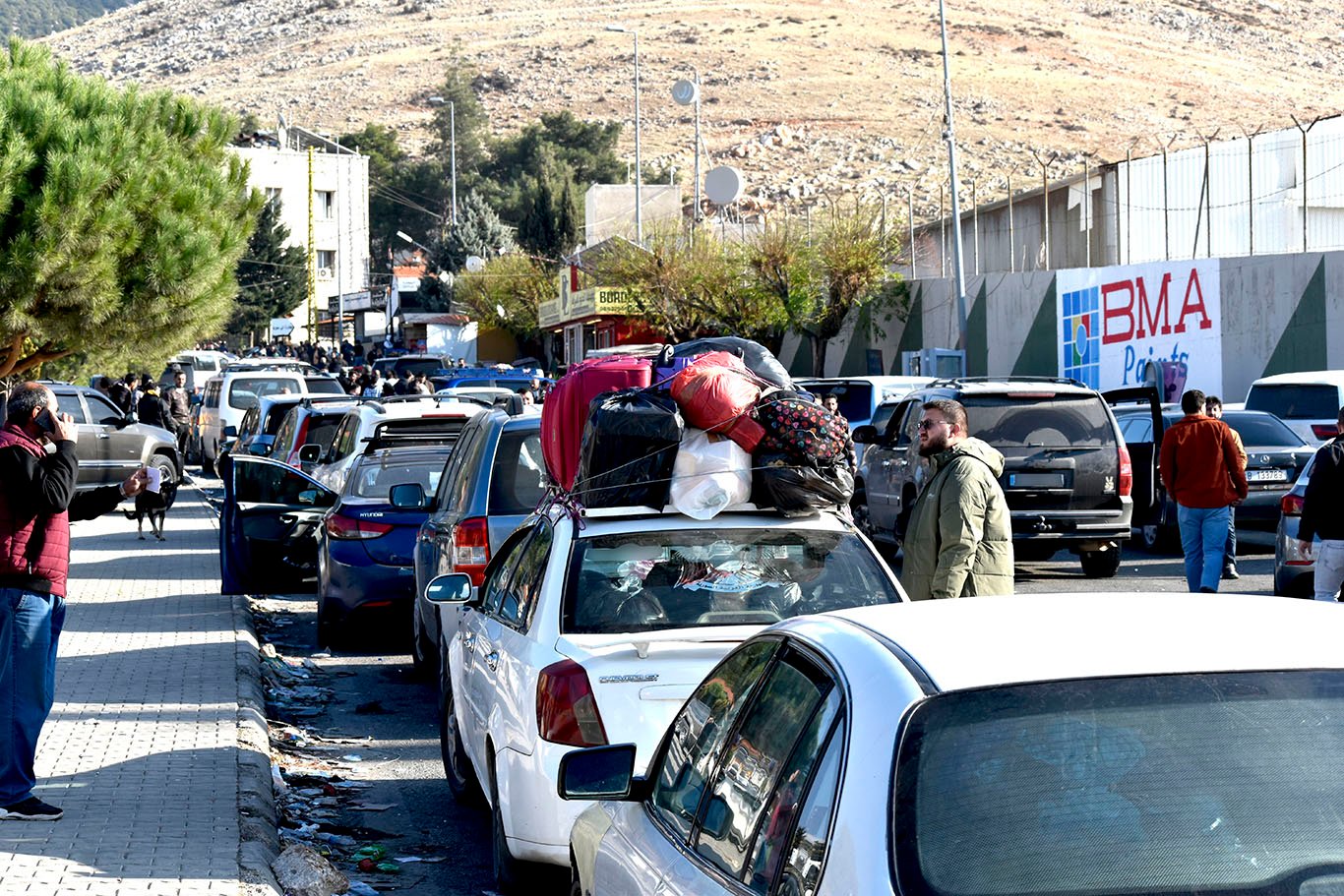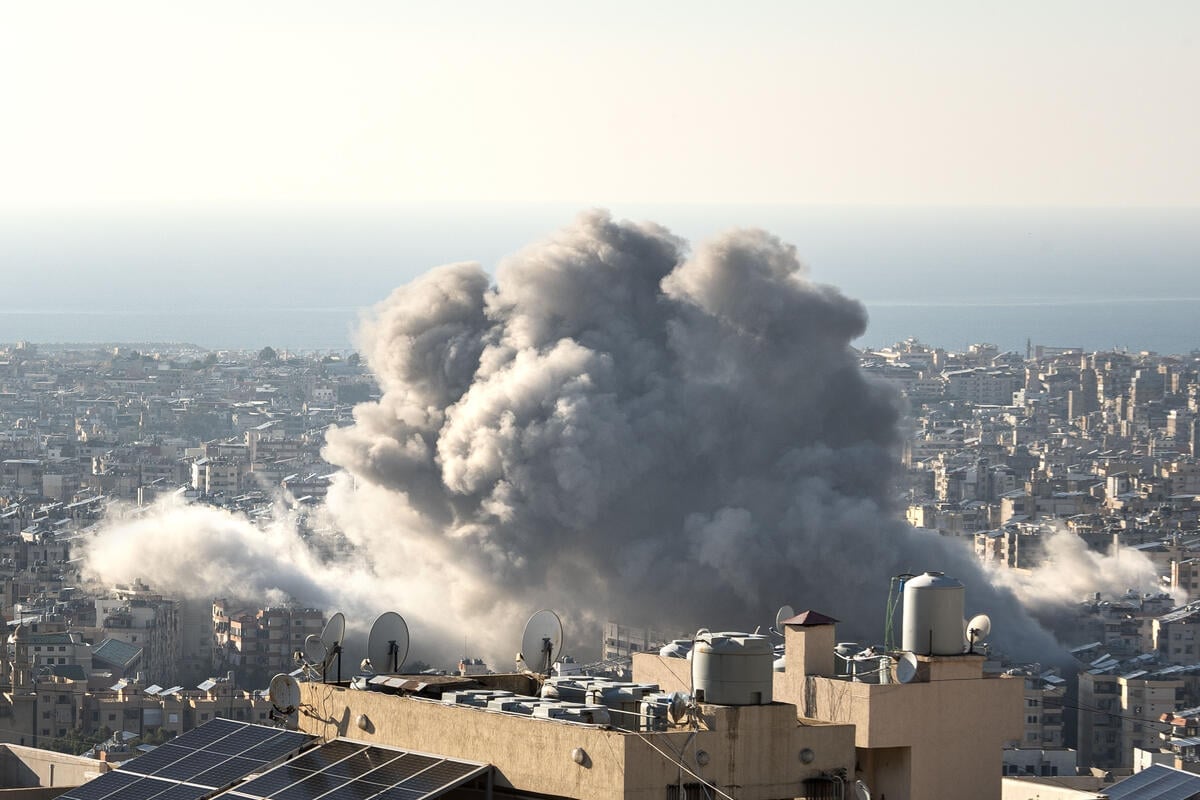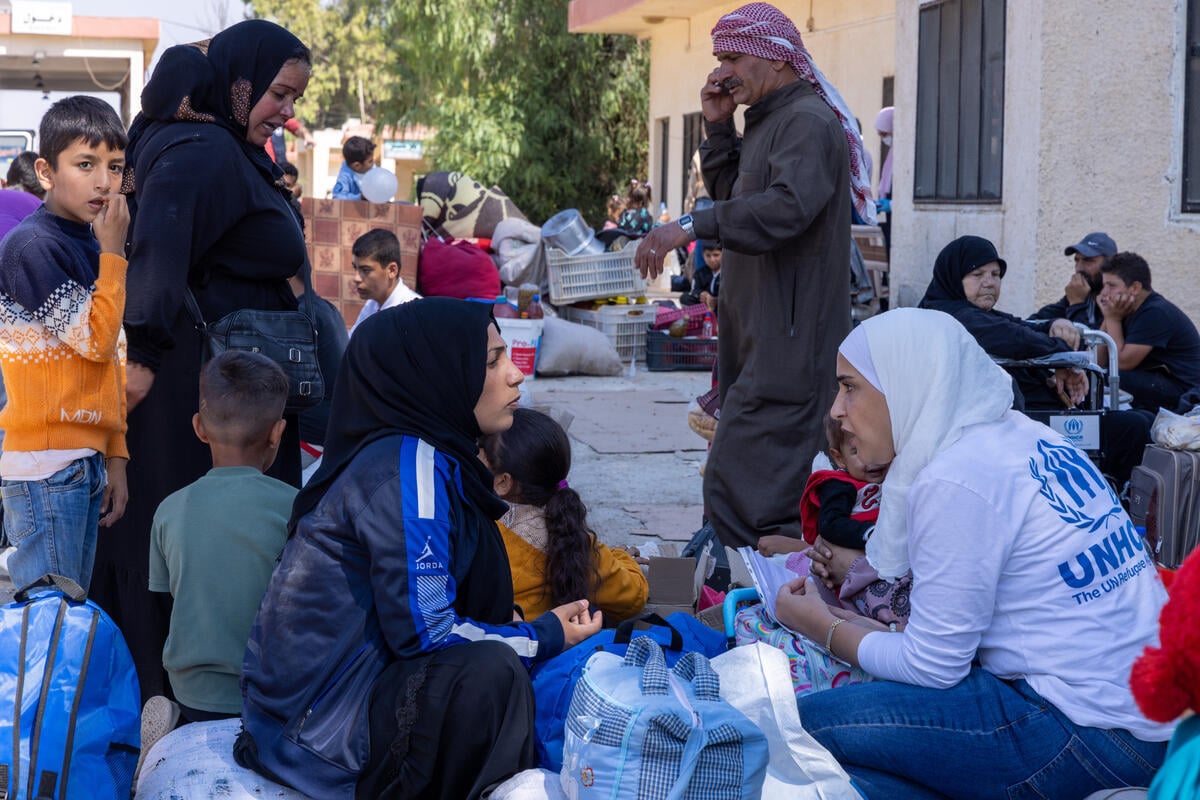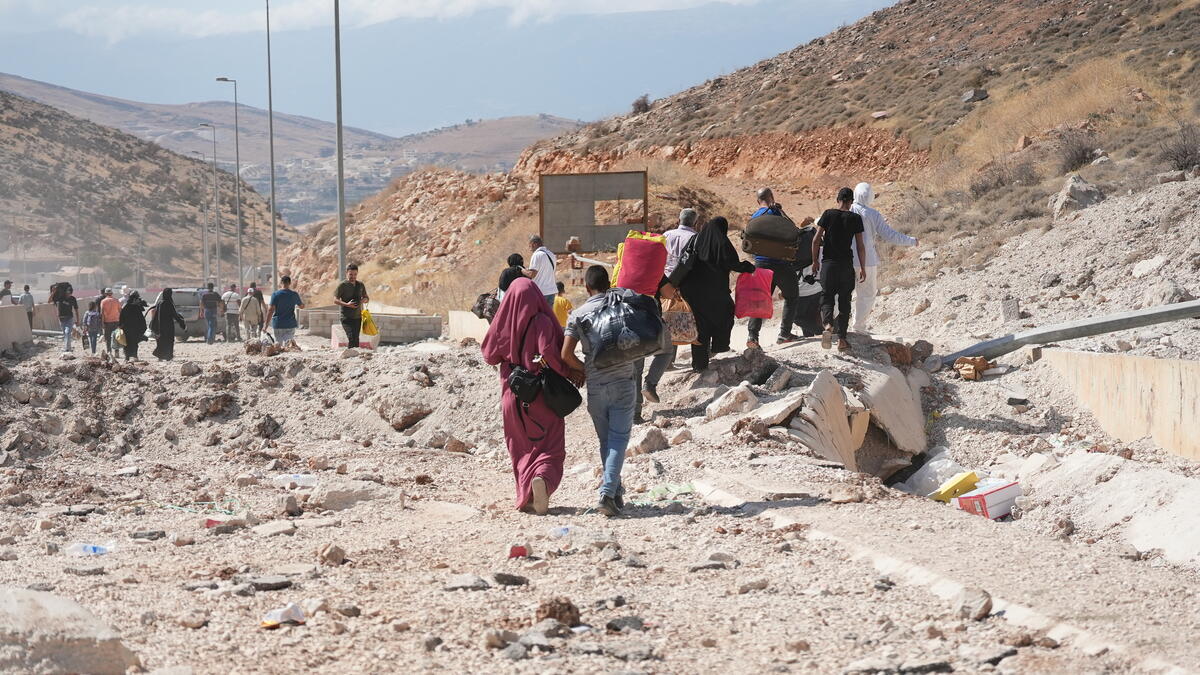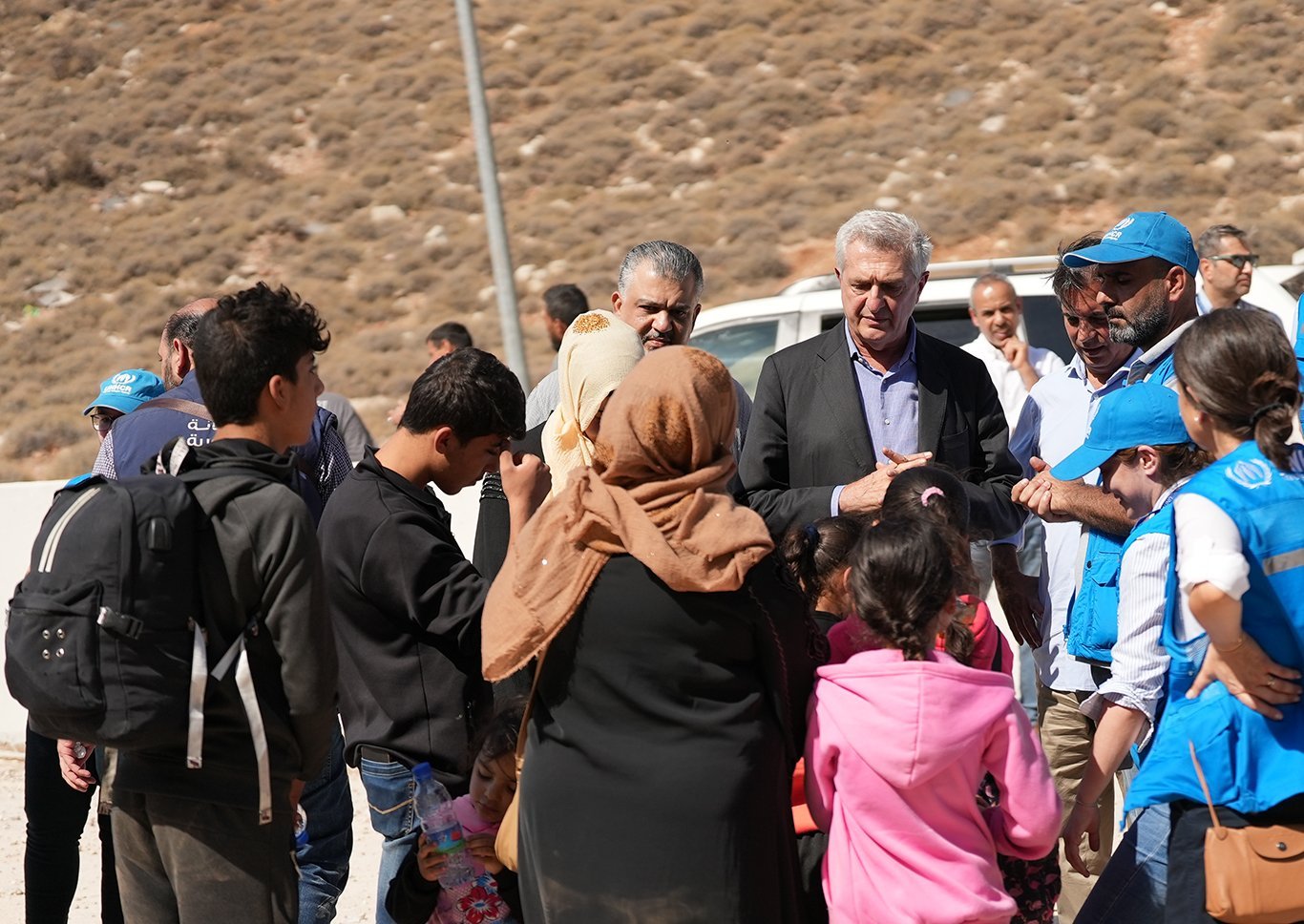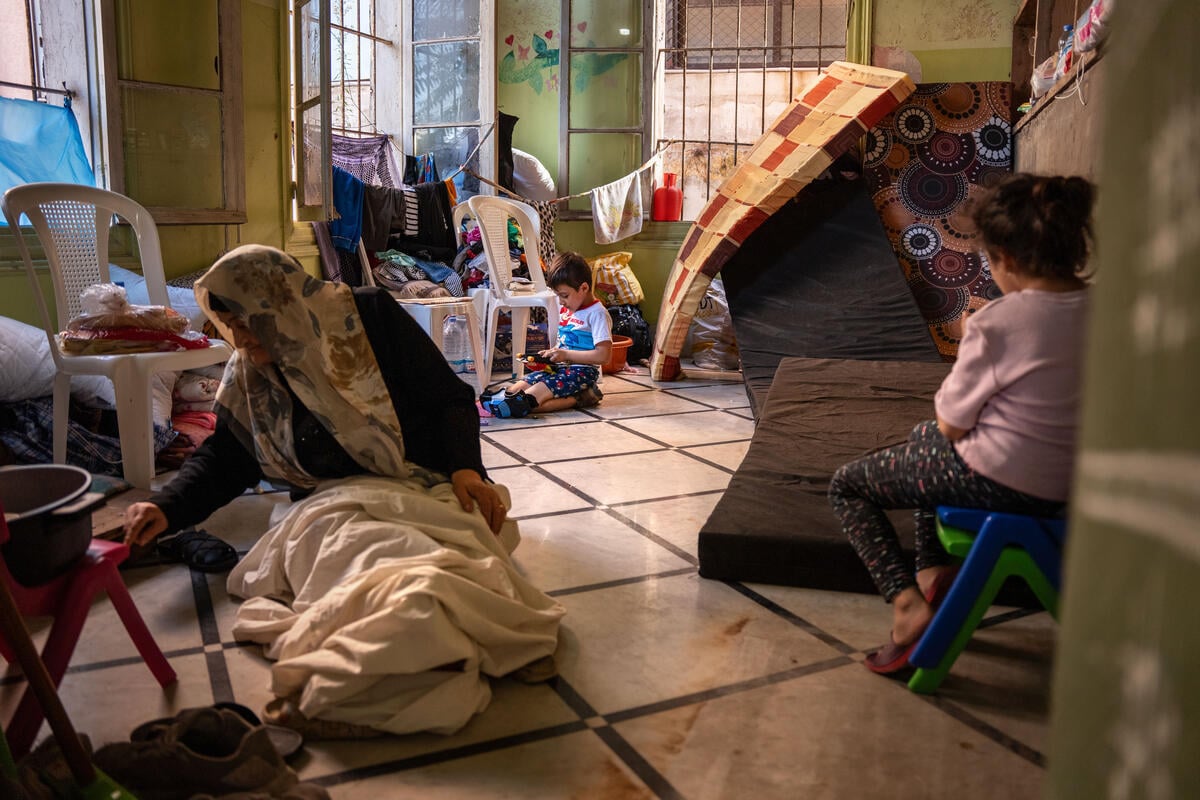UNHCR Syria assessment team finds acute humanitarian needs in Homs
UNHCR Syria assessment team finds acute humanitarian needs in Homs
Syria
A UNHCR Syria team returned to Damascus last night after a two-day assessment mission to Homs, where they reported thousands of displaced people living in unheated communal shelters. Half of the city's hospitals are not functional and there are severe shortages of basic supplies ranging from medicine to blankets, winter clothes and children's shoes.
The team, led by our representative to Syria, reported that UNHCR's partner, the Syrian Arab Red Crescent (SARC), had so far registered 250,000 displaced people in and around the city.
During their mission, the team met SARC counterparts and briefed local officials on UNHCR's operations in the area, including the provision of non-food aid supplies. The team included UNHCR Syria's shelter coordinator to assess the feasibility to engage in shelter rehabilitation.
UNHCR, which has more than 350 staff in five locations across Syria, has been present in the city since mid-November, where it has been provided assistance through SARC since June. The team visited two communal buildings, one housing 70 families (400 individuals) and another one with over 400 families (2,300 individuals), the largest such shelter in Homs. Local solidarity networks have been formed and are providing very organized help to local residents, but the needs are acute.
Many children have not been to school for the last 18 months. Some city hospitals have been converted into communal shelters and 60 percent of Homs doctors have left, along with other medical personnel. There are serious shortages of medicine and medical equipment.
With cold weather having arrived, UNHCR plastic sheeting is being used to cover open doorways and missing windows in collective centres, as well as to partition rooms. None of the buildings were heated, and there is a shortage of blankets, winter clothes and shoes for children.
During the mission, nine UNHCR trucks carrying urgent winter assistance arrived in Homs with 6,000 quilts, 12,000 sleeping mats, 13,000 winter blankets, 1,000 mattresses and 6,000 boxes of sanitary napkins. More aid supplies are scheduled for delivery in the coming days to complete relief shipment for some 3,000 households (15,000 people). To date, we have distributed aid packages to 5,000 displaced families in Homs.
One UNHCR staff member is now deployed in Homs, and we intend to further scale up our winter response with more deliveries of heavy blankets, quilts and mattresses. We are also identifying new humanitarian partners to expand our local distribution network. In addition, agreements have been finalized with partners for the rehabilitation of some 40 communal shelters across the country.
Lebanon
In Lebanon, we are working with a recently formed inter-ministerial committee to better coordinate efforts to help Syrian refugees and affected Lebanese communities. The Government of Lebanon is working with us to resume joint registration through the Ministry of Social Affairs (MOSA). UNHCR, MOSA, the High Relief Commission and other partners are also working to improve identification procedures for refugees and to harmonize the criteria used for determining those in need of help.
Close to 7,000 refugees were registered last week with UNHCR in Beirut, North Lebanon, Bekaa and South Lebanon, bringing the total number of those receiving assistance from UNHCR and partner agencies in the country to 133,349.
Preparations for winter remain a priority, with temperatures now dropping below 10 degrees in some areas of the Bekaa and North Lebanon. So far in November, UNHCR, WFP and other partners have distributed food vouchers, blankets, mattresses, carpets, heaters, and most recently, much-needed fuel coupons to some 50,000 refugees.
Renovations on a variety of unfinished buildings and collective shelters to house refugees are also continuing, along with the provision of cash so refugees can make rental payments. Provision of mattresses, blankets and household items continues. All refugees live in Lebanon's towns and cities, not in camps.
Jordan
We receive ongoing reports from Syrian refugees arriving in Jordan who say they were targeted en route to the border. UNHCR calls on all sides to ensure that civilians have access to safe passage.
Refugees are citing generalized violence, targeted threats against individuals and their families, and a breakdown of basic services as the reasons they fled their country. Jordanian hospitals receive injured refugees on a daily basis.
This perilous journey is particularly tough for women and children, who UNHCR staff report are often visibly traumatized. Women still recovering from childbirth are making the journey. Some report that they are inducing the birth of their babies early, in advance of their flight. Last night a woman with a twelve-day-old child arrived. In the preceding days, we received several families with babies less than a month old. Many families are opting to sedate their children during the journey, they say to keep them calm and quiet.
Also in Jordan, we have seen recent media reports of underage marriages involving Syrian refugee girls. UNHCR is aware of this phenomenon and has been working with partners to increase awareness among refugee families, religious leaders and others. While we know there have been such marriages, we do not know the numbers. Jordanian law prohibits marriage for those who are 18 or younger.
An inter-agency assessment is currently being undertaken to determine the extent of the problem and identify future interventions. UNHCR is currently producing a series of service announcements which we hope will appear son on Jordanian national television covering the issue of early marriage.
Work on preparing for winter in Za'atri refugee camp north of Amman is continuing. More than 1,500 tent "porches" have been distributed to provide additional space for gas heaters and protection from the elements for those living in tents.
Statistics
Across the region, the number of Syrian refugees registered or awaiting registration in the region is now more than 465,000.
The totals for the countries immediately surrounding Syria and in North Africa are: Jordan, 137,998; Lebanon, 133,349; Turkey, 123,747; Iraq, 60,307; and North Africa, 9,734.
In addition, authorities estimate there are tens of thousands more Syrians across the region who have not come forward yet to register for assistance, including up to 150,000 in Egypt; 100,000 in Jordan; 60,000 to 70,000 in Turkey and tens of thousands in Lebanon. As the conflict continues and uprooted Syrians already in neighbouring countries run out of money and resources, more people are expected to register for help.
For further information on this topic, please contact:
- Ron Redmond (Regional Spokesman) on mobile +962 79 982 5867
- Mohammed Abu Asaker (Regional Spokesman, Arabic) on mobile + 971 50 621 3552
- Tala Kattan on mobile: +962 79 978 3186
- Aoife McDonnell on mobile: +962 795 450 379
- Dana Sleiman on mobile: +961 3827 323
- Sybella Wilkes on mobile: 41 79 557 9138



